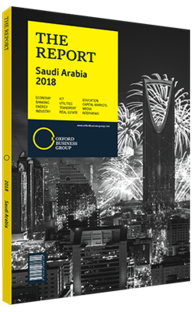Mohammed Al Badr, Managing Director, Saudi Chemical: Interview

Interview: Mohammed Al Badr
What advantages have the development of industrial zones provided to manufacturers?
MOHAMMED AL BADR: The main advantage of having a factory established in an industrial zone, such as Sudair, Al-Kharj and Jeddah, is having to deal with one counterpart for logistics and operations, rather than different government entities. However, industrial zones in major cities are currently congested and have limited land available, while those located in remote areas require a lot of work. In addition, companies cannot develop permanent bases in such areas, as the Ministry of Municipal and Rural Affairs has the right to reallocate the land originally devoted to warehouses to residential use at any time. The establishment of a stronger logistics authority and permanent land allocation to factories with appropriate cargo and ports logistics would allow for longer term industrial planning and growth. The country is currently developing logistics hubs across different regions with free zone incentives and Customs and handling facilities. This will help promote economic growth and regional diversification.
In what manufacturing areas do you see potential for public-private partnerships (PPPs)?
AL BADR: The potential is usually greater in industries such as defence where the government is the only client and contracts have to be long term to incentivise investors. At the moment, however, there is no unified regulatory framework for PPPs, which restricts their wider use. Pharmaceuticals are another sector in which PPPs could play a greater role in the future. One form of partnership the Ministry of Health is looking at relates to the outsourcing of medical or pharmaceutical supply to the private sector, rather than buying and storing large numbers of items at the ministry’s facilities. This links local pharmacies to primary or secondary care hospitals so that patients can collect prescriptions from any pharmacy using their national ID numbers. The pharmacy then collects the money directly from the government, which saves around SR4bn ($1.1bn) in logistics costs and eliminates the sale of counterfeits.
How is the government seeking to increase the local output of pharmaceutical products?
AL BADR: The government is increasingly giving preference to local production and procurement. In the pharmaceutical industry one way of doing this is to facilitate product registration by the Saudi Food and Drug Authority. It used to take two years to register a drug locally, compared to six months in Europe. With the new rules now being implemented, a drug that has already been registered in advanced economies will automatically also be available in the Kingdom. This improved ease of doing business will incentivise manufacturers to localise production. As a result of the government’s strategy to increase local content, we have also signed agreements with a number of international companies to localise the production of pharmaceuticals in Saudi Arabia.
What role can research and development (R&D) play in expanding product manufacturing?
AL BADR: Deepening local manufacturing of generic drugs constitutes the low hanging fruit, but partnerships with international companies and the transfer of specialised technology can yield greater results in the long term. The priority is for products that tackle diabetes and other lifestyle-related diseases. Despite high demand, we do not produce such products locally. However, there are universities and pharmaceutical colleges – including King Abdulaziz City for Science and Technology – which are starting to collaborate with international companies in this field. R&D is a long-term investment with a minimum 9-year return prospect. Having international companies manufacturing specialised, patented products in local factories would contribute to the quality of manufacturing and provide positive branding for Saudi Arabian pharmaceuticals.
You have reached the limit of premium articles you can view for free.
Choose from the options below to purchase print or digital editions of our Reports. You can also purchase a website subscription giving you unlimited access to all of our Reports online for 12 months.
If you have already purchased this Report or have a website subscription, please login to continue.

